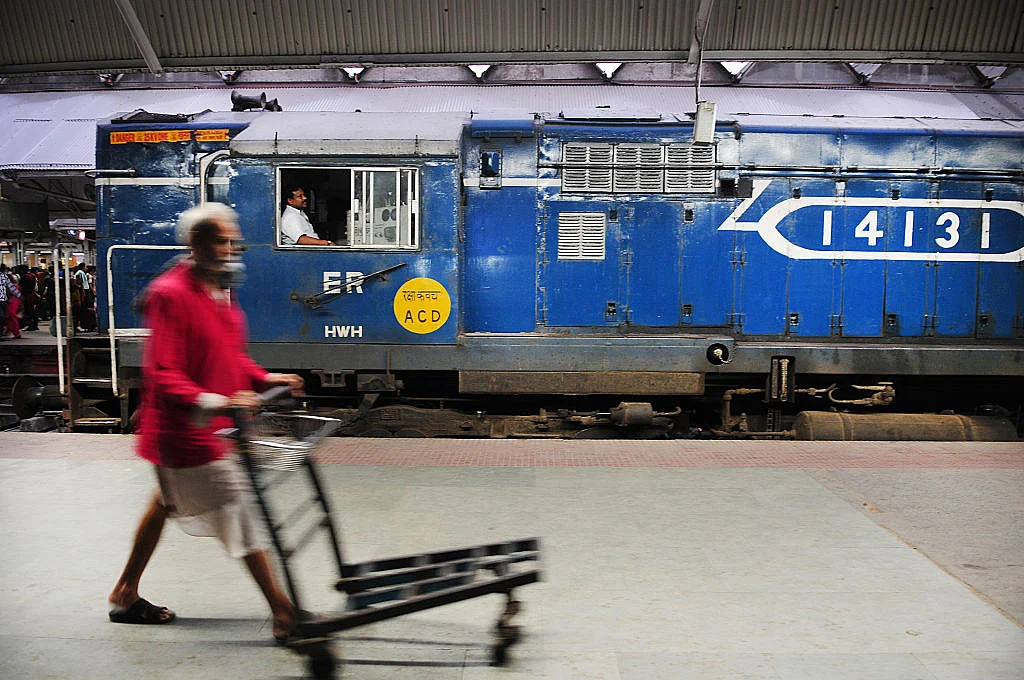Recommended Sunday Reading—March 26
The best Sunday reads

On Antyodaya Express from Howrah to Ernakulam
By 8 pm, the train is rumbling through Odisha and all mobile charging points have been taken. Music from mobile phones, ranging from folk songs of Bengal to Bhojpuri film music, compete with the steady chugging of the train. One passenger points to his GPS, the blue dot rushing parallel to the ocean and asks another, “You think we can see the sea from here?” The sun has set though and the observatory windows—a novelty on unreserved trains—have little to offer. Home-cooked meals are prised open, filling the train with the heady aroma of mustard and spicy fish curries. The lights stay on, all night. But that doesn’t seem to bother many—as one passenger puts it, a good meal and a place to stretch your legs is all you need to get some sleep. In The Indian Express.
TMK: Disrupter, Attention-seeker, Democratiser
The 41-year-old can be seen regaling listeners in fishermen's kuppams (hamlets) along the beaches of Chennai, at railway stations and on city transport buses. "Certain art forms can be very elitist. They never go beyond their spaces. We wanted to move beyond these artificial boundaries," says the man. According to him, performing on buses is the most difficult bit. "It is very uncomfortable. There is no security, no stage and no audience as such, because people keep getting on and off. But credit goes to our young musicians who took up the challenge... People are requesting more such concerts." In The Telegraph.
“Humour is a defence mechanism,” she says, “because it allows us to overcome the sadness in our lives.” The breast cancer set, which had the audience in splits, is one such example. “For a long time, we have used laughter to survive. The biological function of humour is human survival, it is to establish an ‘in’ group.” Mittal is one of India’s superstar stand-up comics. Her breast cancer awareness video alone has garnered 34 lakh views on YouTube so far, and she has close to 1.25 lakh YouTube subscribers, 2.64 lakh followers on Twitter, and more than 62,000 followers on Facebook. In The Hindu.
The language we need to learn every five years
In much the same way that corporate management terms such as ‘circling back,’ ‘brainstorming’ or ‘blue-sky thinking’ once infiltrated everyday language, as the influence of technology on the economy continues to grow, there will likely be a welter of new terms to add to our vocabulary. Kennedy was highly motivated to learn the lingo, and set her initial focus on technical terms such as ‘series A funding’ and ‘series B funding’ (first and second rounds of outside financing) and ‘product-market fit’ (extent to which a product matches market demand), rather than more colourful expressions such as ‘sunsetting’ (phasing out or discontinuing a product or service) or ‘eating your own dog food’. (No, that doesn’t mean actually eating dog food; it means that a company tests out its product or service in-house before bringing it to market. On BBC.com.
Against the tide: An exhibition of LGBT artists
What was it like to live in those stifling years, if your desires were not ordained by the state? And what role did art play? Was it a place of refuge or rebellion; an enclosed Arcadia or a way of recording affections and longings that had otherwise to be ruthlessly concealed? These questions lie at the heart of Queer British Art at Tate Britain, a landmark survey of the period between 1861, when the death penalty for sodomy was abolished in England and Wales, and 1967, when consensual sex in private between two men was decriminalised, as long as both participants were over the age of 21. In The Guardian.
Follow us on: Facebook, Twitter, Google News, Instagram
Join our official telegram channel (@nationalherald) and stay updated with the latest headlines
